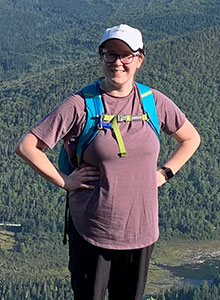The Fish Habitat Harmful Alteration, Destruction, and Displacement (HADD) project was created to advance the involvement of the Maritime Aboriginal People’s Council, along with the Maritime Aboriginal Aquatic Resources Secretariate in the authorization and consultation of projects that could result in the HADD of fish and fish habitat in the Maritimes. The HADD Coordinator will review HADD authorization requests received by DFO from project proponents to ensure proper measures are being taken with concern to the wellbeing of fish and fish habitat. The HADD Coordinator stays up to date with the latest knowledge, research, and updates to the Fisheries Act that pertain to fish and fish habitat.
Up to 2012, the HADD provision served as the primary focus of federal regulation for habitat under the Fisheries Act. However, in 2012, the previous government (in addition to other changes) removed the HADD provision from the Fisheries Act via omnibus budget bills. Removal of the HADD provision significantly narrowed the scope and nature of activities covered by the prohibition. Amendments to the Fisheries Act were introduced in the House of Commons on February 6, 2018. Notably, these amendments include restoring the HADD provision and expanding the scope to all fish, regardless of their commercial value. As well as enhancing fish and fish habitat protection, several amendments serve to “strengthen the role of Indigenous peoples in project reviews, monitoring, and policy development while also promoting the recognition of rights, respect, co-operation, and partnership.” The HADD project was formed in response to these amendments to protect and express the rights of the Native Council community of Indigenous Peoples continuing on their traditional ancestral homelands and territories (off-reserve) throughout the Maritimes Region of Canada.
The HADD Coordinator will develop capacity and provide expertise in addition to becoming a focal point between the DFO and the MAPC partner Native Councils, their Natural Life Harvesting Commissions and their Aboriginal Communal Commercial Fishing entities.
Christina Davis: Fish and Fish Habitat Coordinator
 Christina Davis began at MAPC/MAARS in the summer of 2022 as the Fish and Fish Habitat Coordinator. Christina graduated with her Bachelor of Science in Forestry at the University of New Brunswick in 2017, before continuing her education through her Masters of Environmental Studies at the University of Waterloo where she focused on Indigenous involvement in forestry in New Brunswick. Through this, she gained a keen interest in the concerns and issues affecting the Indigenous communities across Canada.
Christina Davis began at MAPC/MAARS in the summer of 2022 as the Fish and Fish Habitat Coordinator. Christina graduated with her Bachelor of Science in Forestry at the University of New Brunswick in 2017, before continuing her education through her Masters of Environmental Studies at the University of Waterloo where she focused on Indigenous involvement in forestry in New Brunswick. Through this, she gained a keen interest in the concerns and issues affecting the Indigenous communities across Canada.
Starting in 2020, Christina regularly collaborated with the staff at MAPC/MAARS through her work at the New Brunswick Aboriginal Peoples Council as the Natural Resources Manager, and spent time learning more about the issues facing the off-Reserve Indigenous population in the Maritimes, especially as it relates to fish and fish habitat.
Christina spends as much time as she can in the outdoors, paddle boarding and kayaking in the summers, hiking year-round, and spending the winters cross-country skiing and snowshoeing.
Email: cdavis@mapcorg.ca
